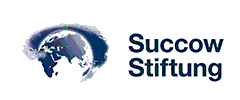MORGEN - Peatland Revitalisation
Peatland Revitalisation as Greifswald's Adaptation Strategy - Prospective Development through Use of Wet Peatlands
Greifswald and Vorpommern, given their coastal location, will be affected by climate change on the one hand by increased summer droughts and on the other by floods. In the district of Vorpommern-Greifswald there are 82,350 hectares of peatlands that have been drained for utilisation (and emit 17-38 tonnes of CO2 per hectare per year), which is around 30% of the agricultural area. Drainage removes existing water from the landscape in particular in winter and spring, thereby intensifying the effects of drought events in summer.
The goal of the project was to reduce agricultural and urban vulnerability by rewetting drained peatlands and switching to site-adapted utilisation over the largest possible area.
Rewetted peatlands can play an important role in climate change adaptation while reducing greenhouse gas emissions. They support water retention in the landscape, provide a retention area for heavy rainfall and flood events, reduce and delay runoff, serve as a habitat for endangered species, and help to cool the regional climate. Further peatland loss can be halted and the rising sea level in the coastal and river valley peatlands can be compensated for by renewed peat growth.
The project established and consolidated urban-rural relationships for the production of biomass in paludiculture and its utilisation (for energy: heat; for materials: e.g. insulation materials). The target group includes landowners and other decision-makers who have an influence on the use and water level of peatlands (and biomass utilisation).
The Chair of General Economics: Landscape Economics drew up development scenarios for future utilisation. The project site, water levels, current and potential future use, utilisation options and alternative solutions were presented using suitable model areas and underpinned by a cost-benefit analysis to determine the economic and social benefits (or damage).
The project was funded by the Federal Ministry for the Environment, Nature Conservation, Nuclear Safety and Consumer Protection via the project management organisation Jülich and coordinated by the Michael Succow Foundation. Project duration: 01 January 2018 - 31 December 2020.
Contact at the University of Greifswald
Prof. Dr. Volker Beckmann
Chair of General Economics: Landscape Economy
Soldmannstraße 15
17487 Greifswald
Tel.: +49 3834 420 4122
Fax +49 3834 420 4107
volker.beckmannuni-greifswaldde

